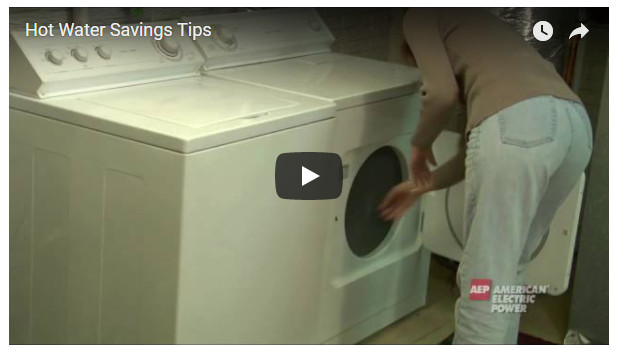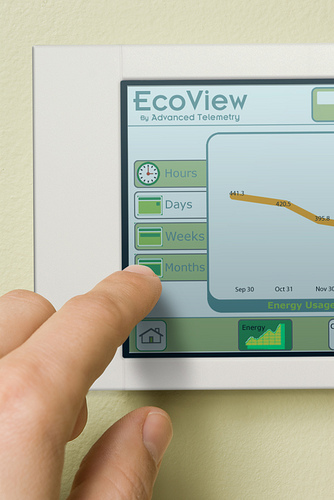Large families tend to use more energy than smaller families. This can add up in the costs department. Here are some strategies to help save money on your energy bills:
Cook with a Plan
Plan your meals out so that you aren’t turning your oven on and off all day. It takes a lot a energy to pre-heat your oven. By batching items together, you are saving money. Consider other methods to heat your food. Microwaves and toaster ovens use a fraction of the energy. These devices may not be practical for large families. Even using the cooktop is more energy efficient than heating the oven. Another method to consider is using a crockpot. Larger sized versions can make enough food to feed your large family. Also cooking several days meals at once can save on not only energy but preparation time and clean up as well.
Get a Large Freezer
By using a large freezer you can buy in quantity (especially meat) when it is on sale and freeze it for later use. This can save substantial amounts on food costs. Using a “chest freezer” can save substantially over an upright freezer since the cold stays in the bottom instead of “tumbling out” when the door is opened. The one disadvantage of a chest freezer is that things on the bottom are difficult to locate. This problem can be eliminated (or at least reduced) by using a series of cardboard boxes to organize the contents. This way you can lift out the top boxes to get to the boxes on the bottom.
Use Cold Water for Clothes
Using cold water in the clothes washer saves you money on heating the water. Approximately ninety percent of the energy usage of a clothes washer comes from the hot water. This leaves just a fraction of the usage coming from actually washing the clothes. Large families have a lot of laundry. By reducing the amount of energy usage, you will dramatically reduce your power bill. This can also leave more hot water in your water heater for all of those showers. There are even laundry detergents that are designed to get your clothes clean just with cold water. Consider getting the newer style energy/water saving washers. And get one large enough to reduce the number of loads you have to do. One big load takes less energy than two small loads. If you do a lot of loads of laundry an energy/water saving washer can pay for itself in no time. The Simple Dollar did some basic calculations between the different types of machines and depending on your particular cost of electricity it could take between 1428 and 2667 loads of laundry to cover the difference in cost between an energy saver and standard machine. So for a large family that does 10 or more loads a week that could be as little as 2.5 years.
Reduce Hot Water Usage
Install “low flow” shower heads to reduce the amount of hot water each family member uses. You can reduce the temperature setting on your water heater to save on heat loss through the tank when it isn’t being used. Wrapping your water heater with insulation will also help reduce heat loss. Insulate hot water pipes so you lose less heat as the hot water travels to its destination.
Clothes Dryer
Drying clothes that are already dry sounds like something only a foolish person would do but… you may be doing exactly that, if you run your dryer too long. One way to avoid this is to use a machine with a “moisture sensor” another way is to be sure to take clothes out when they are a little damp and hang them on hangers. This can help eliminate wrinkles as well, thus saving on the need to iron them as well.
Insulate Your Home
Having a properly insulated home can save you loads of money. A large portion of heat is lost through the roof. Add attic insulation to prevent this leakage. Weather strip your doors and windows. Install insulating plates around your outlets and light switches. Seal cracks with caulk to prevent air infiltration. All of these things will help to prevent cold air from seeping into your home preventing drafts. Having a tighter house during the winter can allow you to turn the thermostat down and save money on heat.
Look Into Green Sources
Alternative sources of energy can save you money in the long run. Install solar panels, to reduce your electricity usage. Solar panels allow you to make the energy needed to run your home. There is an upfront investment but look into whether there are tax incentives available for purchasing your solar panels. Solar Source, says “When you use your own home solar electricity system, you reduce the amount of electricity that you pull from the municipal electrical system, thereby reducing how much you pay on your power bill. Over time, as you build your own solar energy system, you can increase its power until you no longer rely on the municipal electricity at all.” You need not be subject to the whim of the power company. You may even be able to sell your excess energy back to the power company.
Saving money is about having a plan in place. Use these strategies to reduce your energy consumption.
You might also like:
- Let It Snow! 5 Expensive Winter Problems to Avoid
- Renting an Older Home? 4 Utility Cost-Saving Updates
- Is Your House Wasting Energy & Costing You More Money
- Saving Money in the Laundry Room?
- Energy Finances 101: How to Decrease Your Bills By 10 Percent or More!
- How To Save Money On Home Energy
- Save Money During Wedding Planning
- Practical Budgeting Tips for Big Families



